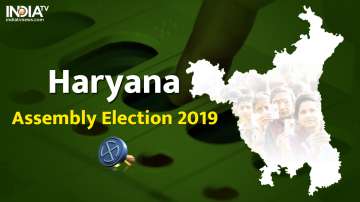‘Aaya Ram Gaya Ram’ is not a new term in Indian politics. It is largely associated with leaders who jump ship often. Some also use this term for political defections. Indiatvnews.com goes down memory lane to trace how a Haryana MLA who switched party thrice in a day led to coining of the term 'Aaya Ram, Gaya Ram' which in English largely is referred to 'party-switching'.
It largely arises from a politician's unwillingness to support his party's stand on a particular issue. Assembly Elections are due in Haryana on October 21 and the counting of the vote is on October 24. Many politicians have switched party before that.
But Haryana holds a special place in history when it comes to politicians switching parties.
The story dates back to 1967 when the first-ever Assembly Elections were held in Haryana. An independent politician named Gaya Lal was elected MLA in the elections. Haryana had 81-member legislative assembly then. Gaya Lal was elected from Hassanpur assembly seat.
Within hours of being elected, Gaya Lal joined the Indian National Congress. A few hours later Gaya Lal joined the United Front coalition but it did not end there. By the evening Gaya Lal had rejoined the Congress Party. In 9 hours, Gaya Lal had switched party thrice.
In the evening, Congress leader Rao Birender Singh addressed a press conference in Chandigarh with Gaya Lal by his side. Birender Singh told media, "Gaya Ram ab Aaya Ram hai."
The phrase "Gaya Ram Aaya Ram" was picked by media after Rao Birender Singh's famous one-liner. Till date, it is used in Indian politics for leaders who jump ship frequently.
But that was not the only “Aaya Ram Gaya Ram” occasion in Haryana's politics.
On 28th June 1979, Bhajan Lal formed the Janata Party government in Haryana. Bhajan Lal, however, jumped ship in 1980 when Indira Gandhi won the Lok Sabha elections in 1980. In a single stroke, Bhajan Lal joined the Congress Party along with all his MLAs.
Since then, Bhajan Lal is widely considered as the father of 'Aaya Ram Gaya Ram' trend in Indian politics.
To stop this trend, the Rajiv Gandhi government in 1985 introduced the anti-defection law to stop this trend. Rajiv-led Congress Party had won 404 seats in Lok Sabha and in order to stem any defection, he used this huge majority to pass a Constitution Amendment Bill, that included the Tenth Schedule, to enact the the anti-defection law.
The anti-defection law sought to prevent such party hopping. The anti-defection law laid the process by which legislators may be disqualified on grounds of defection. An MLA or leader who switches party can avoid anti-defection law, only if one-third of the party legislators resign. Otherwise, any MLA or MP resigning from the party would stand disqualified and will lose membership.
The anti-defection law is applicable till date for all MLAs or MPs.
But party-switching is not just an Indian phenomenon. It happens the world over. In the Australian continent, the term used for party switching is called Waka-jumping.
